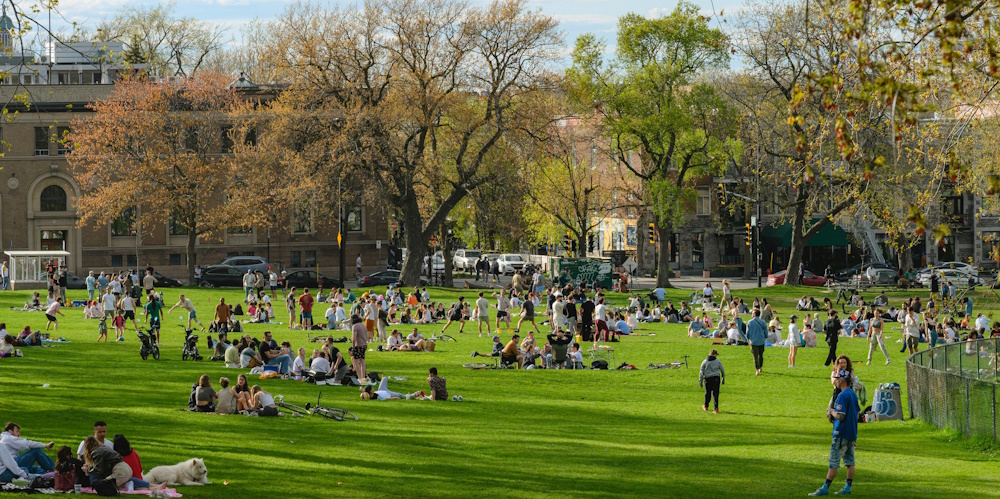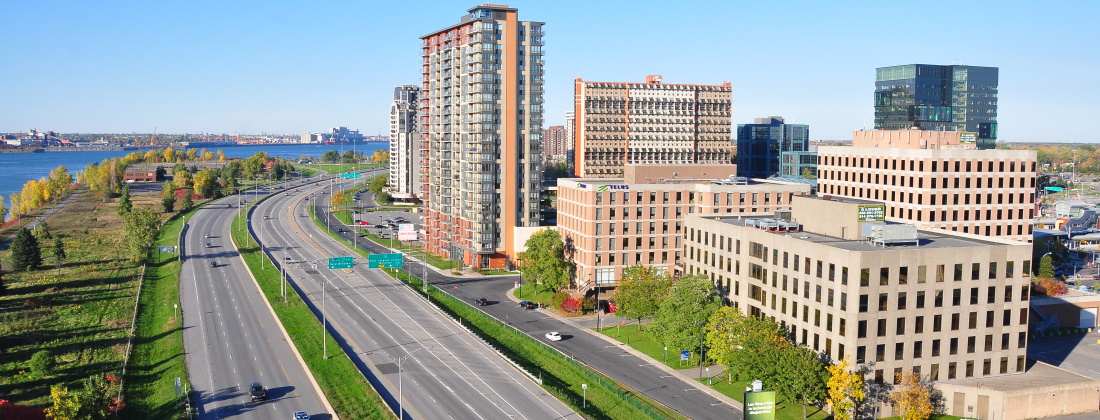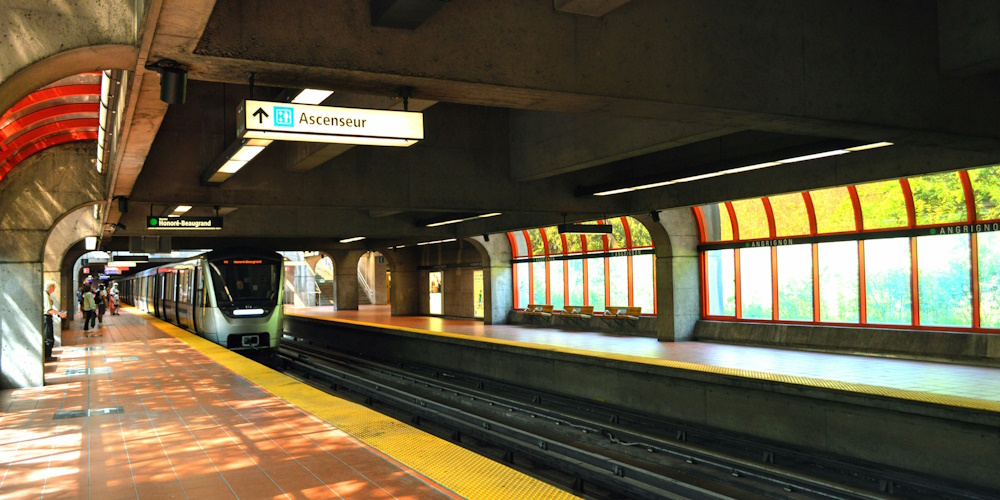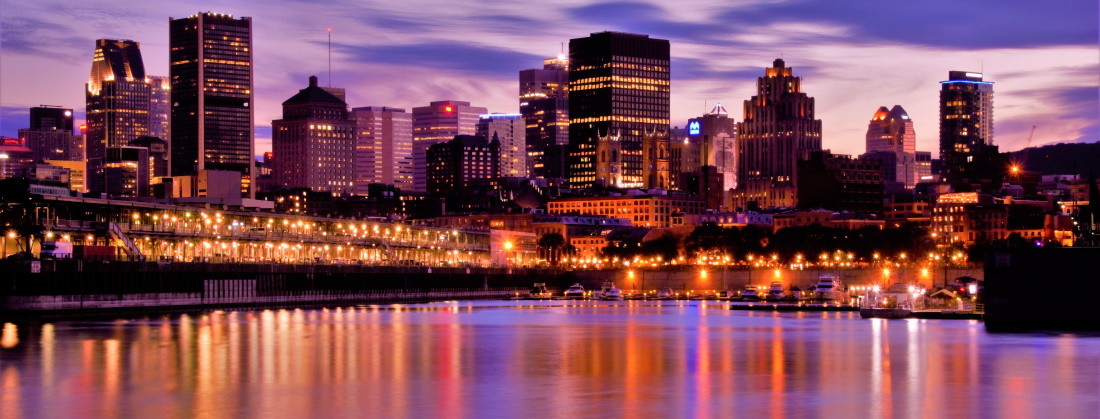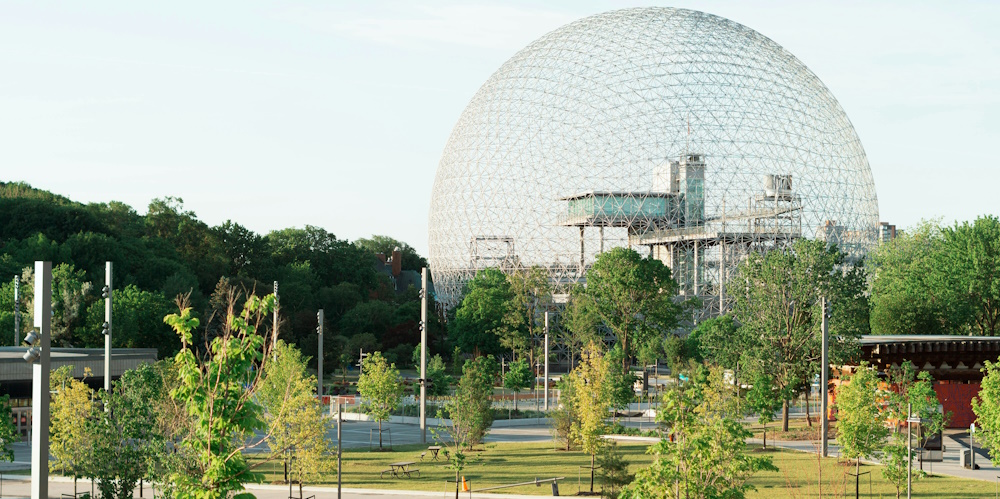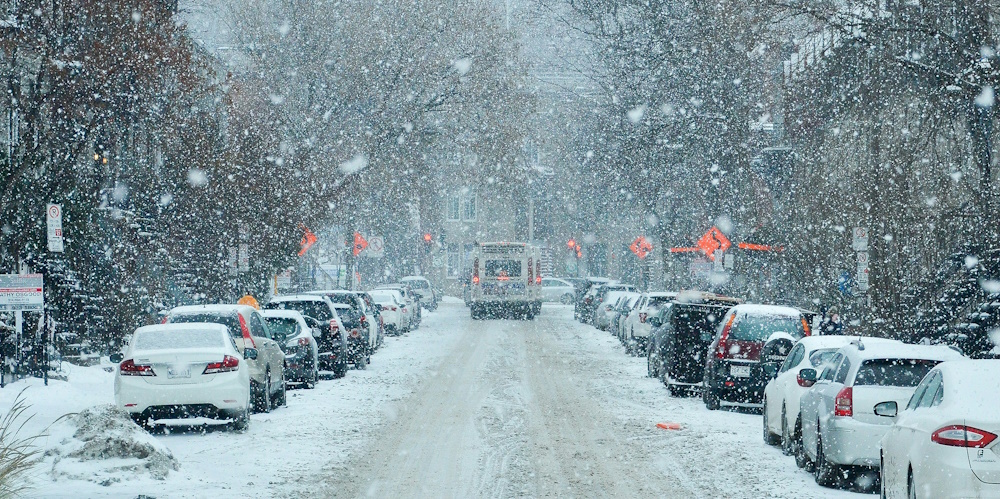Property in Montreal tends to be less expensive, and the market is less competitive than in other major Canadian cities, such as Toronto or Vancouver. Unlike these bustling metropolises, Montreal’s property market benefits from greater affordability, lower levels of foreign investment, and a more balanced supply and demand dynamic. This makes Montreal an attractive option if you’re looking for a less frenetic property hunt.
When investigating areas and suburbs in Montreal, you should consider factors such as location, safety, and proximity to schools and places of work. Fortunately, the public transport system is extensive and efficient, making commuting straightforward from almost anywhere in the city.
Most people moving to Montreal choose to rent property rather than purchase, but if you plan to stay long-term, buying could be worthwhile.
Areas and suburbs in Montreal
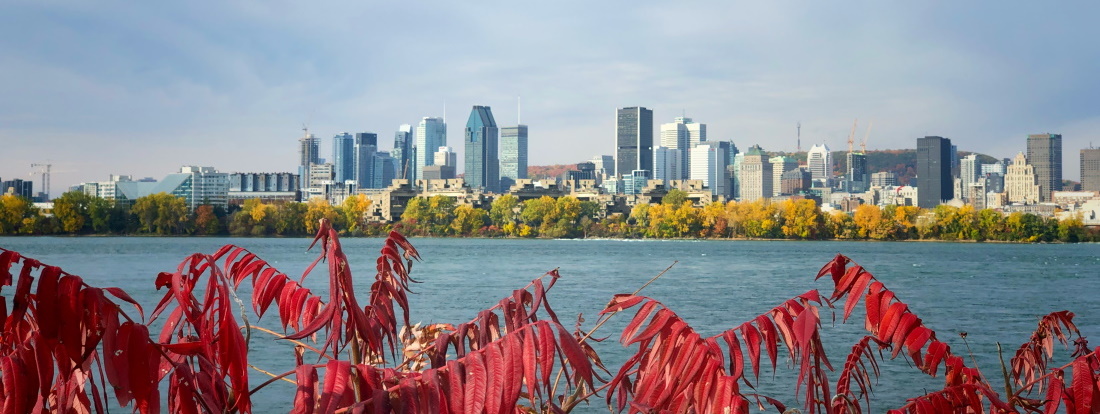
Montreal's neighbourhoods are diverse, each offering a unique slice of the city’s character. Whether you’re looking for a trendy vibe or a quiet, family-friendly community, there’s something here for everyone.
The city centre is vibrant, bustling with activity, and perfect if you want to be in the thick of things. Most housing options here are apartments or lofts, ranging from affordable to high-end. Plateau Mont-Royal, predominantly French-speaking, is ideal if you’re keen to immerse yourself in the local culture, especially with its buzzing café and green alleyways.
For a touch of historical charm, Old Montreal offers exquisite upmarket lofts amid stunning colonial architecture. Westmount, a wealthy suburb, offers grand houses and is known for its excellent schools and stunning parks.
Ahuntsic, on the other hand, is more relaxed and great for families, with plenty of parks and improved public transport making life that little bit easier. The West Island is perfect if you’re after a suburban family lifestyle. Although you'll need to budget for the higher cost of living here, Notre-Dame-de-Grace is a multicultural hub with a community feel that is a great option for expat families.
Off the Island, places like Laval and Longueuil offer tranquillity and green spaces, although the commute can be long. Recent public transport developments have made accessibility easier, but be mindful of the time spent on the road if you work in the city.
Read more about the Best (and Worst) Neighbourhoods in Montreal.
Types of accommodation in Montreal
A wide range of accommodation options are available at different price points in Montreal. You’ll generally find apartments and condos in modern complexes in the city centre, but the cost of housing in central areas can be high, and space is often limited.
Many locals prefer to live outside the city centre, where they can enjoy more spacious properties at more affordable rates. Suburban areas offer houses with gardens, making them ideal for families or anyone seeking more room to breathe.
Finding accommodation in Montreal

Finding accommodation in Montreal is relatively painless. The most overwhelming aspect is often deciding on one of the city’s many neighbourhoods.
Reliable sources for property listings include online platforms such as REALTOR.ca and Centris.ca, which provide comprehensive listings of properties for sale and rent. Real estate agencies like RE/MAX and Royal LePage also offer professional services with access to extensive property databases. Alternatively, platforms like Kijiji can be useful for finding rental properties, especially for short-term stays.
Using a real estate agent can be advantageous if you’re seeking market expertise, exclusive listings, or assistance with negotiations and paperwork. Agents typically charge a commission – usually paid by the seller for property purchases – or a fee for rental services.
An interesting quirk of renting in Montreal is that moving day traditionally falls on 1 July. On this day, the city is buzzing with activity, and it’s common to see hundreds of moving trucks navigating the streets. This tradition aligns with the end of the school year, making it convenient for families, but it can also mean stiff competition for moving services.
Smaller apartments, however, are available to rent throughout the year, so don’t feel bound by the tradition if it doesn’t suit your plans. The best time to look for a place is usually around March when many landlords start advertising their properties.
Useful links
Renting accommodation in Montreal
When renting a house in Montreal, there are a few key factors to consider. Compare the cost of the property with its size, location, and amenities. Ensure you conduct a thorough inspection of the building and confirm the details of the last renovation with your landlord. Also, confirm the average heating costs during the winter months. Heating costs can be significant, especially during Montreal’s famously cold winters, so it’s important to budget accordingly.
During your inspection, check for structural integrity, such as cracks in walls or ceilings. Test the plumbing and electrical systems, including water pressure, outlets, and lighting fixtures. Verify that any included appliances are in good working condition and that safety features, like smoke detectors, are functional. Look for signs of pest infestations and ensure that heating and cooling systems are adequate for the property’s size.
Making an application
When you’re ready to apply for a rental property, you’ll typically need to provide personal identification, your banking information, and references. Proof of income, such as recent pay stubs or employment letters, can demonstrate financial stability. A credit report is often required to assess your financial responsibility, and references from previous landlords can further support your application.
Landlords in Montreal often conduct credit checks, so be prepared for that step as well. Having all your documents ready can make the application process smoother and quicker.
Leases, costs and fees
Most leases in Montreal are valid for one year. In Quebec, landlords can only request the first month’s rent in advance, and they cannot require a security deposit or any additional fees, such as key or damage deposits. This differs from many other provinces, where security deposits are commonplace.
Clarify which utilities are included in your rent – such as electricity, heating, water, internet, and cable TV – as this can significantly impact your budget. If parking is available, it may come with an additional monthly fee, which should be specified in the lease agreement.
Tenants are often required to obtain home insurance covering personal belongings and liability. While this isn’t a fee paid to the landlord, it’s an additional cost to consider when renting in Montreal.
Terminating the lease
Terminating a lease in Montreal usually requires written notice. For fixed-term leases of 12 months or more, you must provide notice at least three to six months before the lease’s end date. If your lease is shorter or of an indeterminate duration, a one to two-month notice may be required, depending on the specific terms.
Ending a lease early without a valid reason can lead to penalties. You may be responsible for paying rent until a new tenant is found or the lease ends. One way to avoid these penalties is by assigning or subletting the lease, provided the landlord agrees – note that the landlord cannot unreasonably withhold consent. Alternatively, you could negotiate an agreement with your landlord to end the lease early, but this may involve a cancellation fee, often equivalent to two to three months’ rent.
Utilities in Montreal

Utilities in Montreal can vary depending on the type of accommodation you choose. Landlords and tenants can negotiate whether utilities such as electricity, heating, and water are included in the rent or billed separately. Ensure these details are clearly outlined in the lease agreement to prevent misunderstandings.
Apartments generally have lower utility costs than single-family homes, especially for heating during winter. Modern buildings with energy-efficient designs also help keep utility bills manageable, whereas older buildings in historic areas might require more heating due to less effective insulation.
Winter in Montreal, which lasts from December to February, can be particularly harsh, with average temperatures ranging from 16°F (-9°C) to 30°F (-1°C). This means that heating systems are in constant use, significantly driving up energy consumption. In contrast, summer is generally mild, but heatwaves can lead to increased air conditioning use.
Electricity
Hydro-Québec, the primary utility company in the province, provides electricity in Montreal. Setting up your account is straightforward and can be done online or by phone via Hydro-Québec’s Customer Space. Hydro-Québec may require a security deposit if you lack a Canadian credit history, so be prepared for this if you’re new to the country.
To reduce electricity consumption during Montreal’s cold winters, consider installing a programmable thermostat to automatically lower temperatures during non-peak hours. Dressing warmly indoors is another simple yet effective way to reduce reliance on heating. Hydro-Québec offers several programmes to help tenants manage their electricity costs, such as the Equalised Payments Plan (EPP), which spreads electricity costs evenly throughout the year.
Gas
Natural gas, supplied by Énergir, is less commonly used for heating in Montreal than electricity but is still used in some properties for heating or cooking. If your rental includes gas, you must set up an account with Énergir. Similar to electricity, a security deposit might be required based on your credit history.
Montreal recently implemented a bylaw prohibiting new natural gas hookups in buildings up to three storeys and 6,500 feet (600sqm), with larger buildings facing similar restrictions in the near future. This change aims to reduce greenhouse gas emissions and highlights the city’s shift towards renewable energy sources.
For existing rental properties that use natural gas, investing in efficient gas appliances can help lower utility bills. Condensing boilers and furnaces, which achieve high-efficiency ratings, are ideal for extracting additional heat from exhaust gases. Tankless water heaters, which provide hot water on demand, are another great option as they eliminate energy losses associated with traditional storage tanks.
Water
Water services in Montreal are typically covered by property taxes, meaning tenants usually don’t need to worry about separate water bills. It’s still a good idea to confirm this with your landlord to avoid any potential misunderstandings.
New constructions are increasingly equipped with individual water meters, which means tenants in newer buildings may be responsible for their water usage. Being mindful of your consumption is important if you’re in a metered property, as it directly impacts your utility costs.
Bins and recycling
Montreal has a robust waste management system that encourages recycling and composting. Most properties provide blue bins for recycling and brown bins for organic waste, with weekly curbside collection. Regular garbage is collected separately, and collection schedules can vary by borough. To get the most accurate and up-to-date information, use the city’s Info-Collectes tool by entering your postal code to find specific details about collection days and guidelines for household waste, recyclables, and bulky items.
Newcomers can also familiarise themselves with Montreal’s waste sorting requirements by consulting official resources on the Ville de Montréal website, which provides comprehensive guidelines on what materials are accepted. Some boroughs even host workshops or information sessions on waste management practices, which are a great way to learn hands-on.
Useful links
